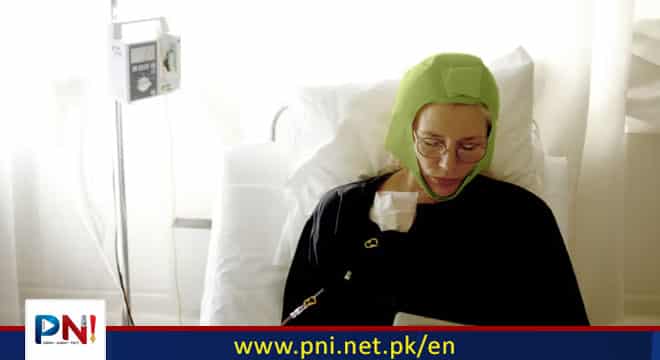ISLAMABAD, MAY 23 (ONLINE): Lung cancer is a major cause of all cancer-related deaths, with some treatment options involving surgery to remove cancerous cells from the lungs.
Researchers seek the best treatment options to provide the longest postsurgery survival times.
A recent study found that providing immunotherapy pre- and postsurgery helps improve survival rates compared to only receiving chemotherapy before surgery.
Lung cancer is the leading causeTrusted Source of cancer-related deaths in the world, but surgical interventions may improve survival rates, particularly when the disease is caught early.
One of the most common types of lung cancer is non-small cell carcinoma (NSCLC). A significant risk factorTrusted Source for this type of lung cancer is smoking. Treatment for NSCLC may involve cutting out parts of the lung to remove cancerous cells. After surgery, doctors may then have patients undergo chemotherapy or radiation to decrease the chances of lung cancer returning.
As with other forms of cancer, lung cancer treatment often involves a combined approach to help increase the chances of long-term survival.
Immunotherapy is a common treatment for lung cancer, and scientists are exploring the best ways to combine it with other therapy approaches. This form of targeted therapy uses monoclonal antibodies to help destroy cancer cells and prevent cancer growth.
A recent study published in The New England Journal of Medicineexamined the perioperative use of the immunotherapy treatment nivolumab among people who had resectable non-small-cell lung cancer. They compared the use of nivolumab pre and postsurgery with the use of only chemotherapy before surgery.
Participants who received nivolumab and chemotherapy before surgery and nivolumab postsurgery were more likely to be cancer-free 18 months later, and more participants in this group experienced a pathological complete response.
The study points to nivolumab’s usefulness in improving event-free survival in people with non-small-cell lung cancer (NSCLC).
Pre- and postsurgical immunotherapy improves survival rates
This study was the international CheckMate 77T trial, a phase three, double-blind study. It included participants with operable non-small-cell lung cancer who had not received previous systemic anticancer treatment.
Researchers randomized 461 participants to receive either nivolumab or placebo. The intervention group received nivolumab and chemotherapy before surgery, while the control group received placebo and chemotherapy every three weeks for four cycles. In total, 229 were in the nivolumab group, and 232 were in the chemotherapy group.
Participants then underwent surgery within six weeks of this pre-surgical intervention. Within three months of surgery, the intervention group received nivolumab every four weeks for a year, while the other group received a placebo.
Researchers looked at event-free survival as a primary outcome. Secondary outcomes included:
A complete lack of viable tumor cells in the primary tumor location and sampled lymph nodes (pathological complete response) after surgery.
10% or less viable cancer cells in primary tumor location and sampled lymph nodes (major pathological response) after surgery.
Overall safety and survival.
The average follow-up time with participants was 25.4 months.
Overall, the group that received nivolumab experienced superior outcomes to the chemotherapy group. Event-free survival at 18 months was 70.2% for the intervention group and 50% for the chemotherapy group.
“For patients with resectable stage IIA to IIIB non-small cell lung cancer (NSCLC), neoadjuvant nivolumab plus chemotherapy followed by surgery and adjuvant nivolumab had a significantly extended event-free survival compared with neoadjuvant placebo plus chemotherapy followed by surgery and adjuvant placebo,” non-study author Mahran Shoukier, MD, an oncologist affiliated with Memorial Hermann, explained to Medical News Today.
Additionally, about a quarter of the intervention group also experienced a pathological complete response, while less than 5% of the chemotherapy group did.
About 35% of the intervention group experienced major pathological responses compared to about 12% of the chemotherapy group.
The groups experienced a similar number of adverse events, but the number of adverse events that resulted in treatment discontinuation was higher in the intervention group. Still, researchers noted that the intervention had no unexpected safety signals.
“The study showed the importance of using nivolumab in addition to the chemotherapy in the neoadjuvant regime for resectable NSCLC (stage IIA to stage IIIB) and then using nivolumab in the adjuvant setting after surgery. This will extend the event-free survival and increase the pathological response without unexpected safety signals.”
Follow the PNI Facebook page for the latest news and updates.









